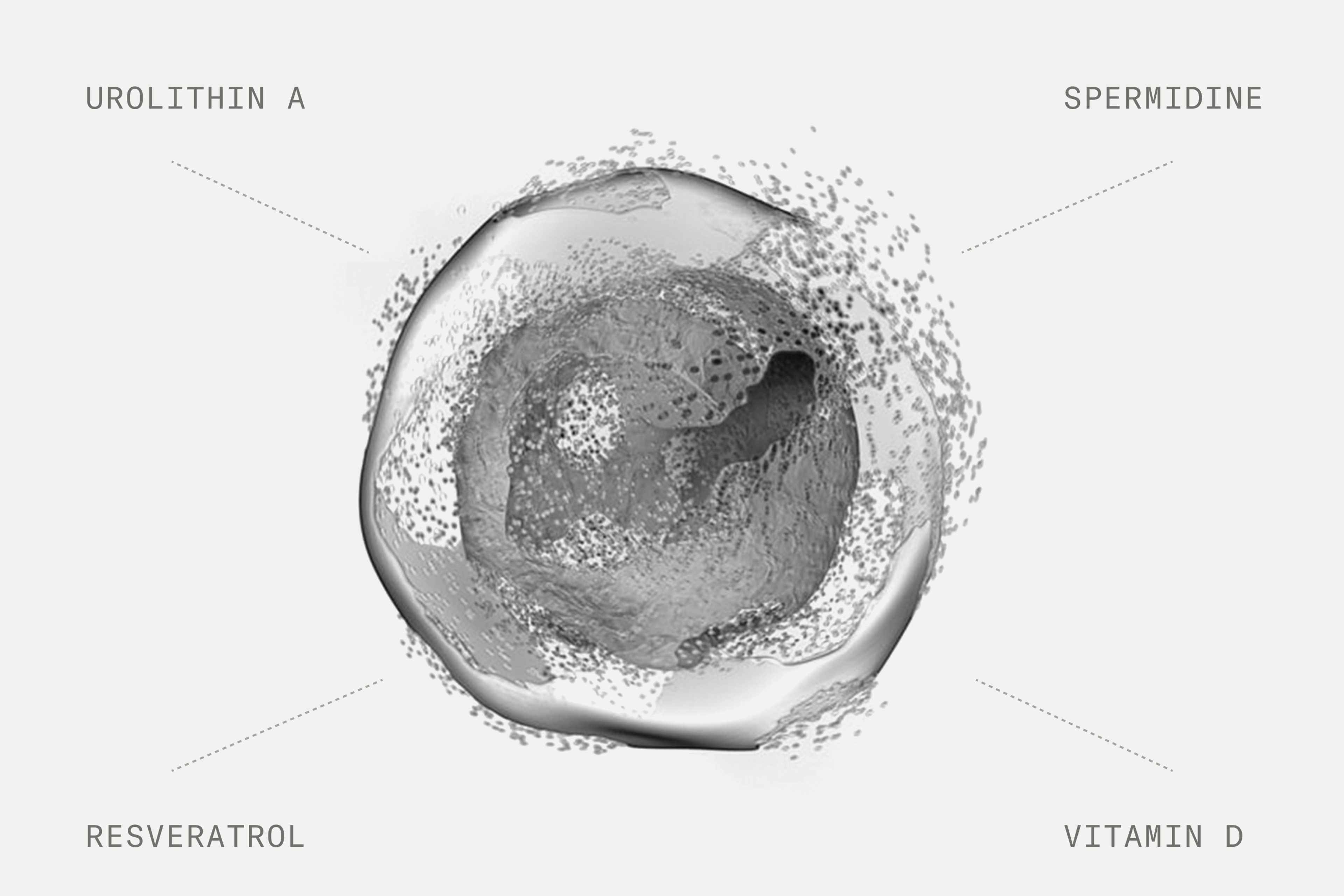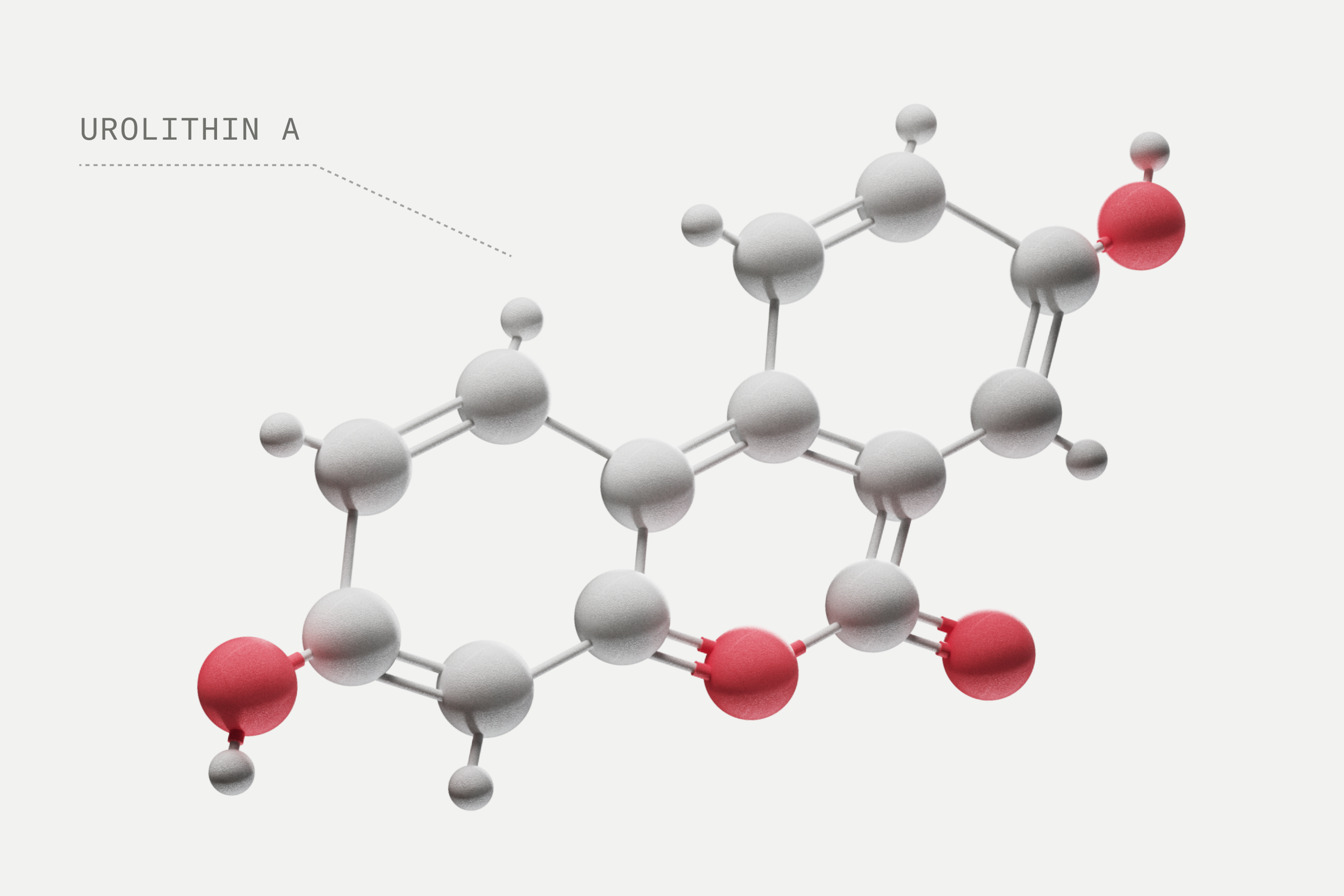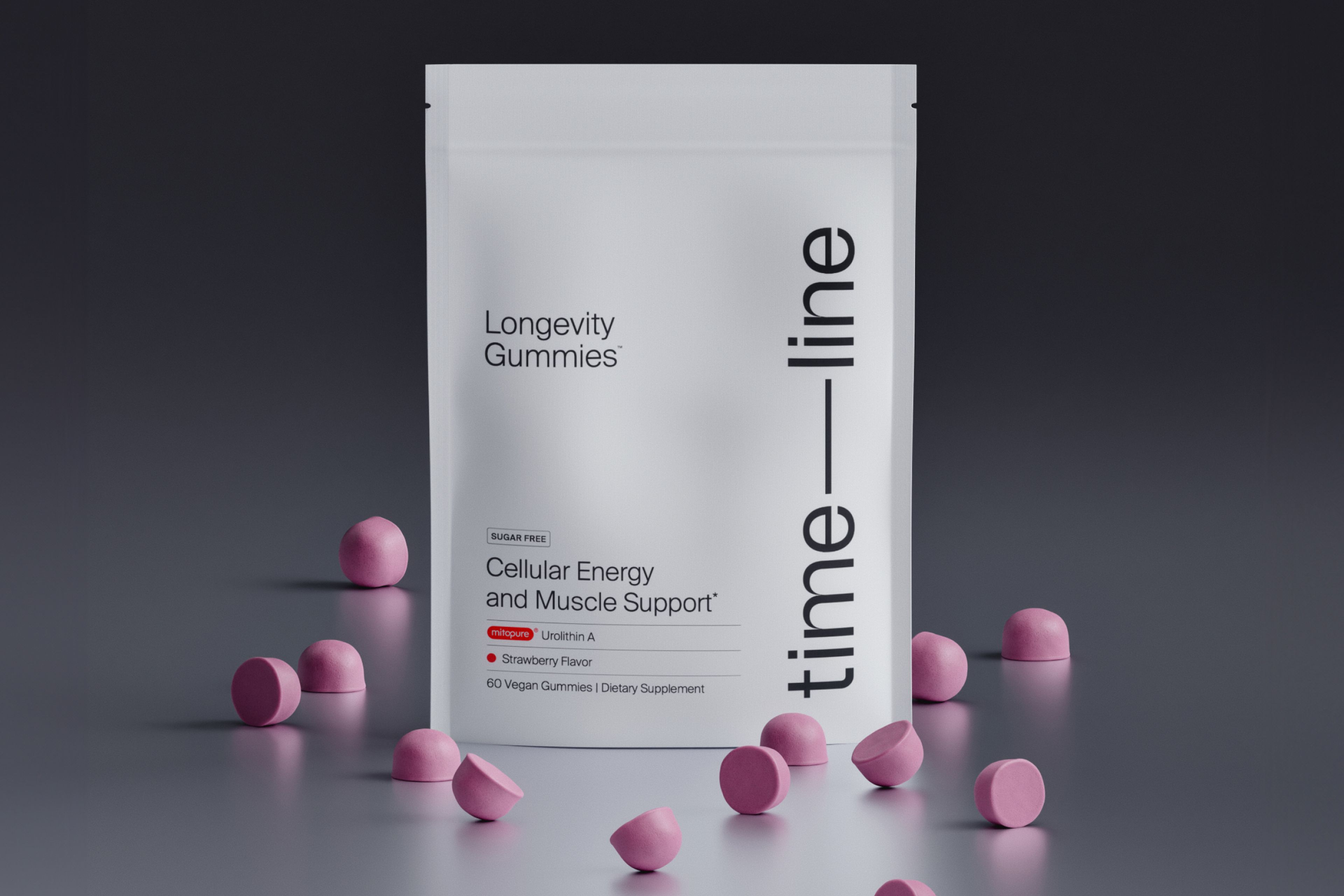4 Supplements and Nutrients for Inducing Autophagy Revealed
Explore four powerful supplements that boost mitophagy, rejuvenate cells, and promote healthy aging. Unlock nature's secrets to cellular vitality.

The four supplements and nutrients that help stimulate autophagy
Imagine if your body had its own recycling system, constantly clearing out old and damaged cells to keep you feeling and looking youthful. Welcome to the world of autophagy – the powerhouse of healthy aging!
This process maintains cellular homeostasis and prevents the buildup of toxic materials in the body that accumulate with age.[1] Given the role of autophagy in promoting healthy aging, it is important to understand how it may be stimulated and how supplements and nutrients may play an important role.
This article is for informational purposes only and is not intended to replace the guidance from a medical professional. Always speak to your doctor first before starting any new diet or supplements.

Urolithin A
Urolithin A
When you eat foods like nuts, berries, and pomegranates, your gut transforms its antioxidants into a natural compound called Urolithin A. Clinical trials have demonstrated UA’s ability to stimulate mitophagy — a specific type of autophagy that involves the mitochondria. [2]Given this, it has been pinpointed as a compound of interest when it comes to health promotion.

Mitopure Softgels
Bestseller4.4 · 3125 reviews
The simplest form of Mitopure
Spermidine
Spermidine is a naturally occurring compound present in a variety of different foods, such as different types of beans, nuts, vegetables, fruit, as well as animal-sourced foods.[5] Many of the anti-aging effects of spermidine are related to its ability to promote autophagy and protect cells.[3] Research suggests that spermidine may potentially be used to help age-related memory loss due to its ability to induce autophagy.[4]
Resveratrol
Resveratrol is a phenolic substance found in grapes, wine, peanuts, soy, and berries[6]. It is considered an antioxidant and has been shown to have anti-aging properties. Numerous studies have focused on the effects of resveratrol on the vascular system, as compromised autophagy is one of the major causes of age-related dysfunction here[7]. Researchers have found that resveratrol stimulates autophagy and may play a role in healthy aging.
Vitamin D
Vitamin D has several important functions in the body, including maintaining strong bones and supporting immune function. Additionally, studies show that it can induce autophagy and, therefore, may play a role in reducing the risk for age-related conditions.[8]
Humans have the ability to make vitamin D or consume it in fortified dairy and non-dairy products, egg yolks, salmon, or supplements.
Final words
Our cellular recycling system, autophagy, is an integral part of healthy aging. Several nutrients have been identified that can enhance its effects. By consuming a healthy diet, exercising fasting, and incorporating autophagy supplements, you can take meaningful steps toward healthy aging.
Authors

Author
Professor of Nutrition & Scientific Writer

Reviewed by
Senior Manager of Nutrition Affairs
References
- ↑
Parzych KR, Klionsky DJ. An overview of autophagy: morphology, mechanism, and regulation. Antioxid Redox Signal. 2014 Jan 20;20(3):460-73. doi: 10.1089/ars.2013.5371. Epub 2013 Aug 2. PMID: 23725295; PMCID: PMC3894687.
- ↑
Andreux PA, Blanco-Bose W, Ryu D, Burdet F, Ibberson M, Aebischer P, Auwerx J, Singh A, Rinsch C. The mitophagy activator urolithin A is safe and induces a molecular signature of improved mitochondrial and cellular health in humans. Nat Metab. 2019 Jun;1(6):595-603. doi: 10.1038/s42255-019-0073-4. Epub 2019 Jun 14. PMID: 32694802.
- ↑
Atiya Ali M, Poortvliet E, Strömberg R, Yngve A. Polyamines in foods: development of a food database. Food Nutr Res. 2011 Jan 14;55. doi: 10.3402/fnr.v55i0.5572. PMID: 21249159; PMCID: PMC3022763.
- ↑
Wirth M, Benson G, Schwarz C, Köbe T, Grittner U, Schmitz D, Sigrist SJ, Bohlken J, Stekovic S, Madeo F, Flöel A. The effect of spermidine on memory performance in older adults at risk for dementia: A randomized controlled trial. Cortex. 2018 Dec 1;109:181-8.
- ↑
Atiya Ali M, Poortvliet E, Strömberg R, Yngve A. Polyamines in foods: development of a food database. Food Nutr Res. 2011 Jan 14;55. doi: 10.3402/fnr.v55i0.5572. PMID: 21249159; PMCID: PMC3022763.
- ↑
Burns J, Yokota T, Ashihara H, Lean ME, Crozier A. Plant foods and herbal sources of resveratrol. J Agric Food Chem. 2002 May 22;50(11):3337-40. doi: 10.1021/jf0112973. PMID: 12010007.
- ↑
Diaz M, Degens H, Vanhees L, Austin C, Azzawi M. The effects of resveratrol on aging vessels. Exp Gerontol. 2016 Dec 1;85:41-47. doi: 10.1016/j.exger.2016.09.016. Epub 2016 Sep 22. PMID: 27666185.
- ↑
Bhutia SK. Vitamin D in autophagy signaling for health and diseases: Insights on potential mechanisms and future perspectives. The Journal of Nutritional Biochemistry. 2022 Jan 1;99:108841
Disclaimer
The information in this article is for informational purposes only and should not be taken as medical advice. Always consult with your medical doctor for personalized medical advice.

•
Nutrition•
First-of-Its-Kind Longevity Gummy Launched

•
Skincare•






